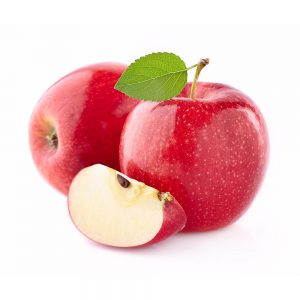Updated 2024
Apple nutrition facts are provided here for you because we wish nothing but a healthy and happy life for you.
apple nutrition
Apples are one of the most popular in the world.
They’re an exceptionally healthy fruit with many research-backed benefits.
A medium apple with a diameter of about 3 inches (7.6 centimeters) equals 1.5 cups of fruit. Two cups of fruit daily are recommended on a 2,000-calorie diet.
One medium apple 6.4 ounces or 182 grams offers the following nutrients
- Calories:95
- Carbs:25 grams
- Fiber:4 grams
- Vitamin C:14% of the Reference Daily Intake (RDI)
- Potassium:6% of the RDI
- Vitamin K:5% of the RDI
What’s more, the same serving provides 2–4% of the RDI for manganese, copper, and the vitamins A, E, B1, B2, and B6.
Apples are also a rich source of polyphenols. While nutrition labels don’t list these plant compounds, they’re likely responsible for many of the health benefits. To get the most out of apples, leave the skin on it contains half of the fiber and many of the polyphenols.
Carbs of apples
Apples are mainly composed of carbs and water. They’re rich in simple sugars, such as fructose, sucrose, and glucose. Despite their high carb and sugar contents, their glycemic index (GI) is low, ranging from 29–44. The GI is a measure of how food affects the rise in blood sugar levels after eating. Low values are associated with various health benefits. Due to their high fiber and polyphenol counts, fruits often have a low GI score.
Fiber in apples
Apples are very rich in fiber. A single medium-sized apple (100 grams) contains about 4 grams of this nutrient, which is 17% of the daily value. A portion of their fiber comes from insoluble and soluble fibers called pectin. Soluble fiber is associated with numerous health benefits, partly because it feeds the friendly bacteria in your gut. Fiber may also help improve fullness and cause weight loss while lowering blood sugar levels and boosting digestive function.


Vitamins and minerals in apples
Apples boast many vitamins and minerals, though not in high amounts. However, apples are usually a good source of vitamin C.
- Vitamin C: Also called ascorbic acid, this vitamin is a common antioxidant in fruits. It’s an essential dietary nutrient that has many important functions in your body.
- Potassium: The main mineral in apples, potassium may benefit heart health when consumed in high amounts.
Apples are not particularly rich in vitamins and minerals. However, they contain decent amounts of both vitamin C and potassium.
Other nutrition in apples
- Quercetin: A nutrient that also occurs in many plant foods, quercetin may have anti-inflammatory, antiviral, anticancer, and antidepressant effects, according to animal studies.
- Catechin: A natural antioxidant, catechin is also present in large amounts in green tea and has been shown to improve brain and muscle function in animal studies.
- Chlorogenic acid: Also found in coffee, chlorogenic acid has been found to lower blood sugar and cause weight loss in some studies.
Apples are a good source of several antioxidants, including quercetin, catechin, and chlorogenic acid. These plant compounds are responsible for many of apples’ benefits.



